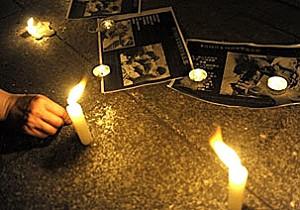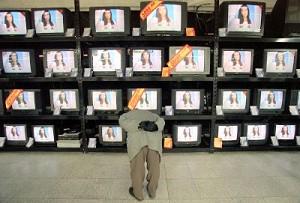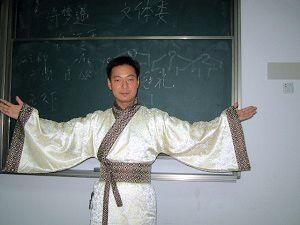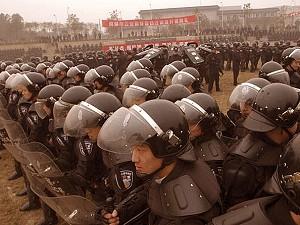On June 12, 2008, exactly one month after the May 12 earthquake, a large number of feature stories showed up on mainland China’s mainstream media. At this moment, what are those disaster victims thinking about? What are they expecting? Radio Free Asia has interviewed a few victims in the Sichuan disaster areas.
An article entitled “One-Month Anniversary of the Earthquake—Saying Goodbye to Grief and Using the National Spirit to Rebuild the Homeland” was published on xinhua.net on Thursday, June 12, 2008. China Central Television (CCTV) also broadcast a special program on the same day. Other domestic media also published various articles and stories to praise quake victims’ undaunted spirits, recall heroic deeds during the rescue operations, and emphasize scenes of people everywhere with teary eyes, supposedly to encourage people in the disaster region to be strong.
However, most of quake victims were not able to see those touching scenes as there is no electrical power in most of the relief tents there, and so of course there is no TV there either. At this time, they have their own things to care more about.
Many families are still anxiously looking for their family members who are still missing and it is not known if they are alive or dead. Liu Renchun, a student of the Beichuan Middle School is on the survivors’ list but she hasn’t been found yet. Her elder sister said, “It has been one month now, and my younger sister still hasn’t been found. I have been looking everywhere for her and checked all the hospitals that I know of, but I still haven’t heard any information about her.”
Eighty percent of the plant buildings of the Oriental Turbine Factory in Hanwang Township of Mianzhu City collapsed in the earthquake, and from the beginning of June the workers returned to their posts to start rebuilding. When a reporter asked them how they managed to start working again in such a short time after they lost their homes and even family members, a worker surnamed Ma said that it is not a noble spirit but the consideration of survival. Ma said, “We have been moving equipment and products to Deyang City during this period of time. We can only live once we can reproduce the production; it is not any kind of spirit; we are just planning for the future.”
So far, the exact number of the workers killed by the earthquake, out of 10,000 total people in the Oriental Turbine Factory, has not been announced yet. When the state media reported Premier Wen Jiabao’s two visits to this key state enterprise, it stated only that more than 30 state-ranking experts had died and that put the workers into grief. Ma described this report as “chilling” and said, “I don’t know what they were thinking about, in terms of humanity. Whether those dead people are migrant workers, official workers or experts, they are all human beings! How could they only mention the experts, it is bitterly disappointing!”
The victims do not have the touching emotions described by the country’s mainstream media; on the contrary, they have much dissatisfaction. A government officer from Mianyang’s Beichun County whose one family member died in the earthquake told this reporter, “Some victims are complaining of the collapsed buildings made of cheap and shoddy materials, and some are complaining about the authorities’ lousy conduct during the rescue operations and the rescue teams arriving too late. People here all have different opinions and ways of saying those things.”
Disaster victims are still living under the shadow of the earthquake and feel unsettled and unsure of their future. At present, each day they can get 500 grams (1.10 lbs) of rice and a 10 yuan ($1.45) subsidy from local authorities, plus other supplies donated by people, so their basic living conditions are currently met. But what is going to happen to them when all these relief subsidies and supplies get canceled in three months, with decreased donations from people?
Xiao Zhou, who is studying at a technical school at Yinghua Township, Shifang City, said, “There are sufficient supplies for now, but we just don’t know what we are going to do in the future when the assistance from the government is canceled. We will still need outside assistance for building houses. People here need psychological counseling and assistance to erase the shadow cast by the disaster and regain life confidence.”




